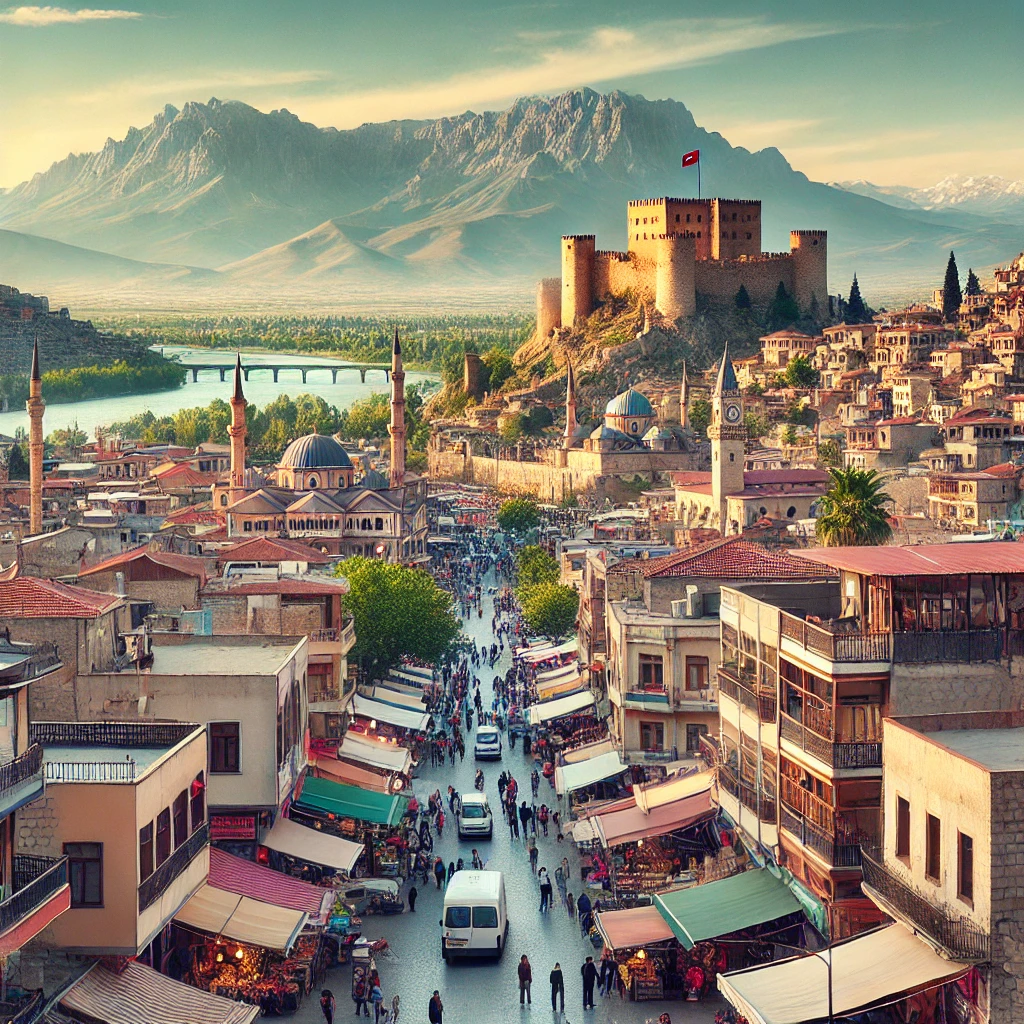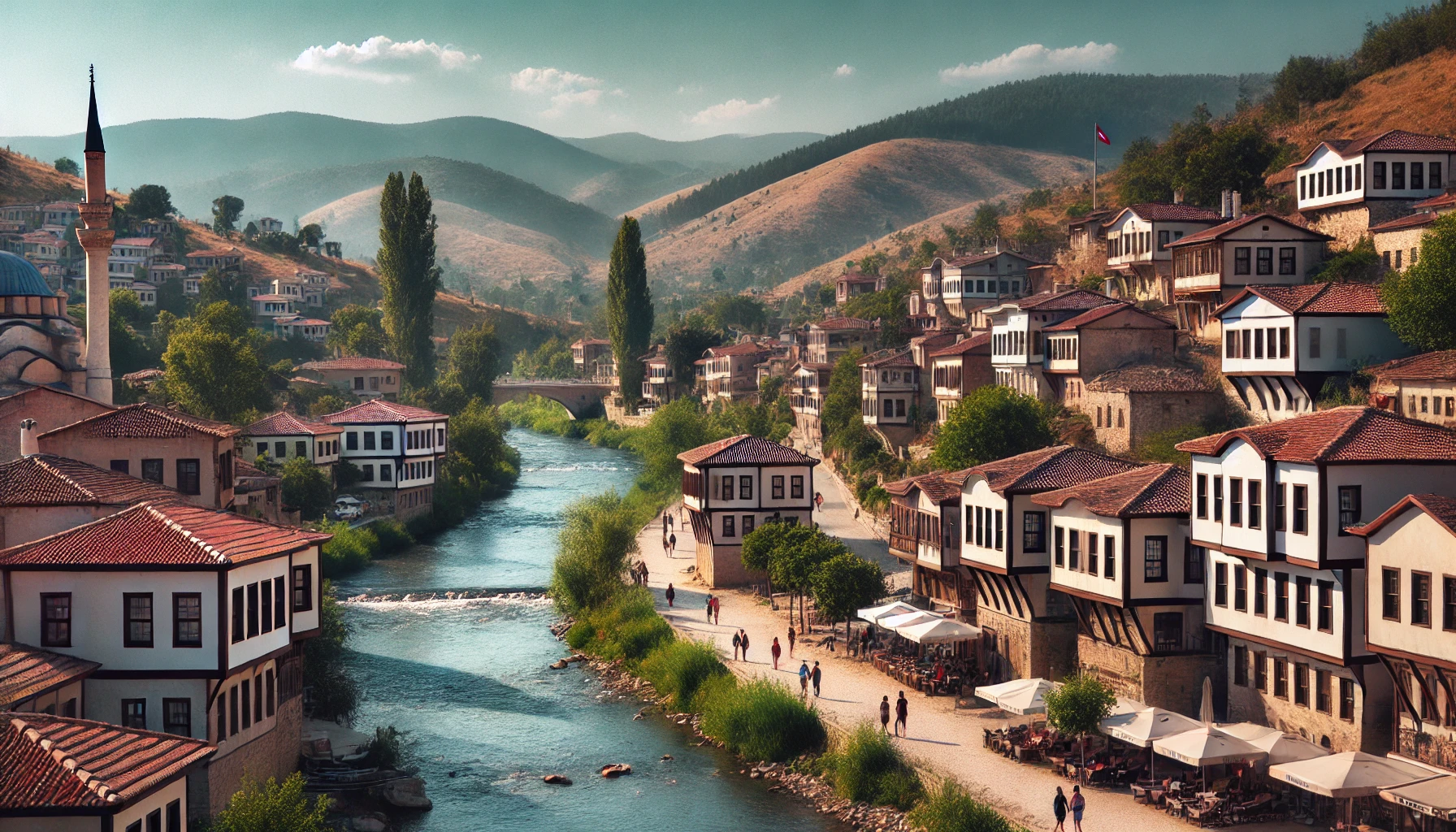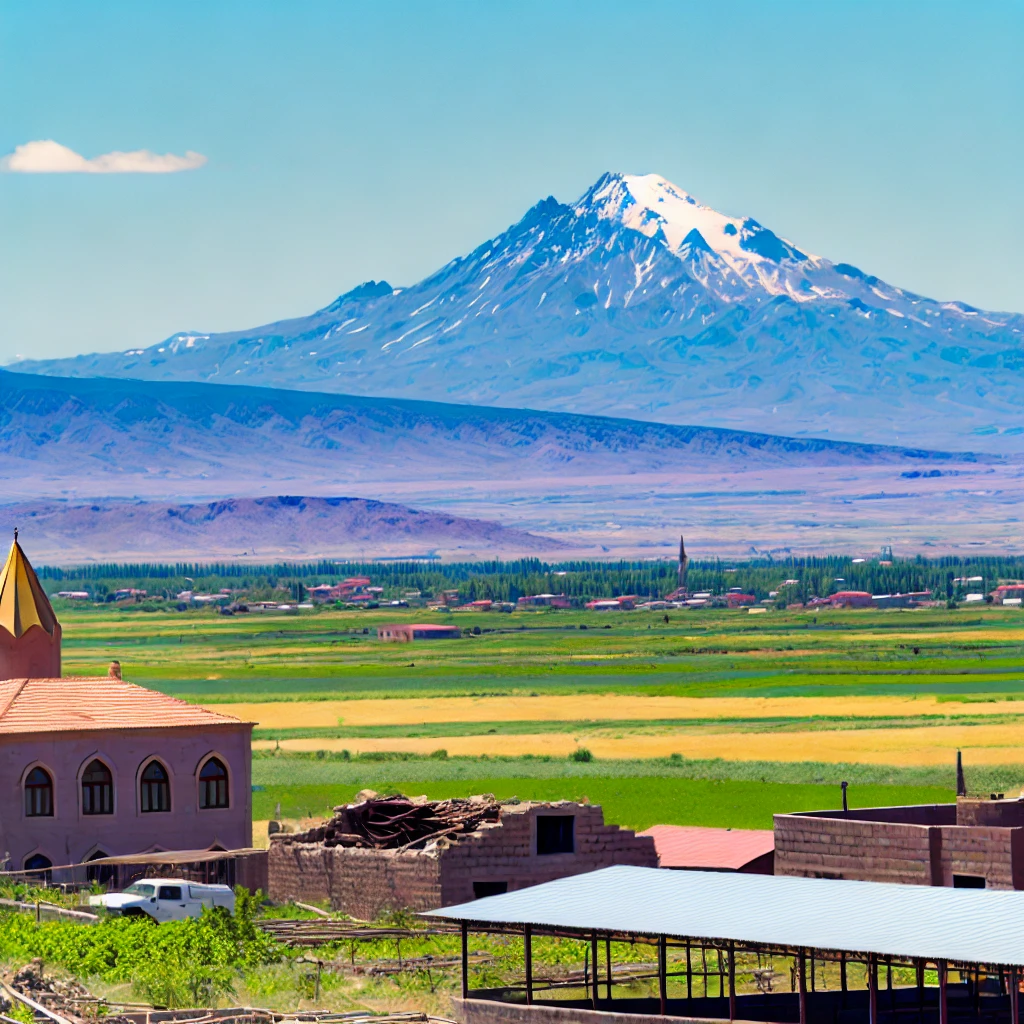Climate of Turkey
Turkey, with its unique geographical location straddling both Europe and Asia, offers a diverse climate that varies significantly across its regions. From the sun-soaked beaches of the Mediterranean coast to the snow-capped peaks of the Eastern Anatolian highlands, Turkey’s climate caters to all types of travelers. This comprehensive guide will take you through the various climatic zones of Turkey, helping you plan the perfect trip no matter the season.
Overview of Turkey’s Climate
Turkey’s climate is characterized by its diversity, influenced by the country’s varied topography and its location between different climatic zones.
Mediterranean Climate
The Mediterranean coast of Turkey enjoys a typical Mediterranean climate, with hot, dry summers and mild, wet winters. This region is ideal for beach lovers and those seeking warm weather for most of the year.
Continental Climate
The interior of Turkey, particularly the Central Anatolian Plateau, experiences a continental climate. This means hot summers and cold, snowy winters, offering a different kind of charm for those who enjoy seasonal contrasts.
Oceanic Climate
The northern coast of Turkey, along the Black Sea, experiences an oceanic climate. This region is characterized by moderate temperatures and high rainfall throughout the year, creating lush green landscapes.
Semi-Arid Climate
The southeastern part of Turkey experiences a semi-arid climate, with hot, dry summers and mild winters. This region is perfect for exploring ancient ruins and experiencing unique landscapes.
Regional Climate Breakdown
Understanding the regional climates of Turkey will help you choose the best destinations and activities based on the time of year you plan to visit.
Aegean and Mediterranean Coasts
The Aegean and Mediterranean coasts of Turkey are popular tourist destinations known for their beautiful beaches and pleasant weather.
Summers on the Coast
Summers (June to September) are hot and dry, with temperatures often exceeding 30°C (86°F). The coastal breezes provide some relief, making it an ideal time for beach activities, water sports, and exploring coastal towns like Bodrum, Marmaris, and Antalya.
Winters on the Coast
Winters (December to February) are mild and rainy, with temperatures ranging between 10°C (50°F) and 15°C (59°F). This is a quieter time for tourism, but it can be perfect for exploring historical sites without the crowds.
Central Anatolia
Central Anatolia, including cities like Ankara and Cappadocia, offers a distinct climate that changes with the seasons.
Summers in Central Anatolia
Summers are hot and dry, with temperatures often reaching 30°C (86°F) or higher. This season is perfect for exploring the unique landscapes of Cappadocia, with its fairy chimneys and rock-cut churches, and enjoying hot air balloon rides.
Winters in Central Anatolia
Winters are cold and snowy, with temperatures often dropping below freezing. The snow-covered landscapes of Cappadocia create a magical atmosphere, making it a great time for winter sports and enjoying cozy cave hotels.
Black Sea Region
The Black Sea region is known for its lush green scenery and mild, wet climate.
Year-Round Rainfall
This region experiences significant rainfall throughout the year, contributing to its verdant landscapes. Summers are warm and humid, while winters are cool and wet. The mild climate is ideal for hiking, exploring tea plantations, and visiting picturesque villages like Amasra and Trabzon.
Eastern Anatolia
Eastern Anatolia experiences a harsh continental climate, with significant temperature variations between summer and winter.
Summers in Eastern Anatolia
Summers are short and warm, with temperatures ranging from 20°C (68°F) to 30°C (86°F). This season is perfect for exploring the region’s stunning natural beauty, including Lake Van and Mount Ararat.
Winters in Eastern Anatolia
Winters are long and extremely cold, with temperatures often dropping below -10°C (14°F). The region is known for its excellent skiing conditions, particularly in resorts like Palandöken and Sarıkamış.
Best Time to Visit Turkey
The best time to visit Turkey largely depends on the regions you wish to explore and the type of activities you plan to engage in.
Spring (April to June)
Spring is one of the best times to visit Turkey, with mild temperatures and blooming landscapes. This season is ideal for sightseeing in cities like Istanbul, exploring historical sites, and enjoying outdoor activities.
Summer (July to September)
Summer is perfect for beach vacations along the Aegean and Mediterranean coasts. It’s also a great time for experiencing the vibrant nightlife and festivals in coastal cities.
Autumn (October to November)
Autumn offers mild and pleasant weather, making it a great time for cultural tours, exploring natural parks, and visiting vineyards in regions like Cappadocia and Thrace.
Winter (December to March)
Winter is ideal for skiing and enjoying winter sports in Eastern Anatolia. It’s also a magical time to visit Cappadocia and experience its unique landscapes covered in snow.
Climate-Related Travel Tips
To make the most of your trip to Turkey, consider these climate-related travel tips.
Packing Essentials
- For Summer: Lightweight clothing, sunscreen, hats, and sunglasses are essential. Don’t forget swimwear for beach destinations.
- For Winter: Warm clothing, including thermal layers, hats, gloves, and scarves, is necessary, especially if you’re visiting colder regions.
- For Rainy Seasons: Waterproof jackets and sturdy walking shoes are recommended, particularly for the Black Sea region.
Staying Hydrated
In the hot summer months, staying hydrated is crucial. Carry a reusable water bottle and drink plenty of water throughout the day.
Protecting Yourself from the Sun
Use sunscreen regularly, wear protective clothing, and seek shade during peak sunlight hours to avoid sunburns and heat-related issues.
Exploring Turkey’s Natural Beauty
Turkey’s diverse climate contributes to its stunning natural beauty, offering a wide range of landscapes and outdoor activities.
Beaches and Coastal Areas
The Mediterranean and Aegean coasts boast some of the most beautiful beaches in the world. Visit Patara Beach, Ölüdeniz, and the beaches of Bodrum for crystal-clear waters and golden sands.
Mountains and Ski Resorts
Turkey’s mountainous regions offer excellent opportunities for hiking, trekking, and skiing. The Taurus Mountains and the Kaçkar Mountains are popular for trekking, while Uludağ and Erciyes are top ski resorts.
National Parks and Nature Reserves
Turkey is home to numerous national parks and nature reserves, each offering unique ecosystems and wildlife. Visit the stunning landscapes of Göreme National Park in Cappadocia, the rich biodiversity of Kaçkar Mountains National Park, and the tranquil beauty of Lake Van.
Cultural and Historical Experiences
Turkey’s climate also influences its cultural and historical attractions, making it a year-round destination for cultural enthusiasts.
Historical Sites
Explore the ancient ruins of Ephesus, the fairy chimneys of Cappadocia, and the majestic Hagia Sophia in Istanbul. Each site offers a glimpse into Turkey’s rich history and cultural heritage.
Festivals and Events
Turkey hosts numerous festivals and events throughout the year, celebrating everything from music and arts to food and culture. Attend the Istanbul Music Festival in summer, the Whirling Dervishes Festival in Konya in December, and the International Antalya Film Festival in autumn.
Unique Seasonal Experiences
Each season in Turkey offers unique experiences that cater to different interests and preferences.
Spring: Tulip Festival in Istanbul
Spring is the season of tulips in Istanbul. The city’s parks and gardens burst into a riot of colors during the annual Tulip Festival, celebrating the flower’s historical significance in Turkish culture.
Summer: Blue Voyage
A Blue Voyage along Turkey’s southwestern coast is a quintessential summer experience. Cruise on a traditional gulet boat, explore hidden coves, swim in crystal-clear waters, and enjoy delicious Turkish cuisine onboard.
Autumn: Grape Harvest
Autumn is grape harvest season in Turkey. Visit vineyards in Thrace and Cappadocia, participate in the harvest, and enjoy wine tasting sessions that highlight the region’s rich winemaking traditions.
Winter: Thermal Springs
Turkey’s thermal springs offer a perfect winter retreat. Visit the thermal resorts of Pamukkale, Yalova, and Afyon to relax and rejuvenate in the healing waters.
Conclusion
Turkey’s diverse climate makes it a year-round destination with something for every traveler. Whether you’re seeking sun-drenched beaches, snowy mountain adventures, or cultural and historical explorations, Turkey offers a unique and unforgettable experience. Understanding the different climatic zones and seasonal variations will help you plan the perfect trip, ensuring you make the most of everything this incredible country has to offer.
So pack your bags, prepare for an adventure, and get ready to explore the diverse climates and stunning landscapes of Turkey. Your journey through this fascinating country is sure to be filled with memorable experiences and breathtaking sights.





